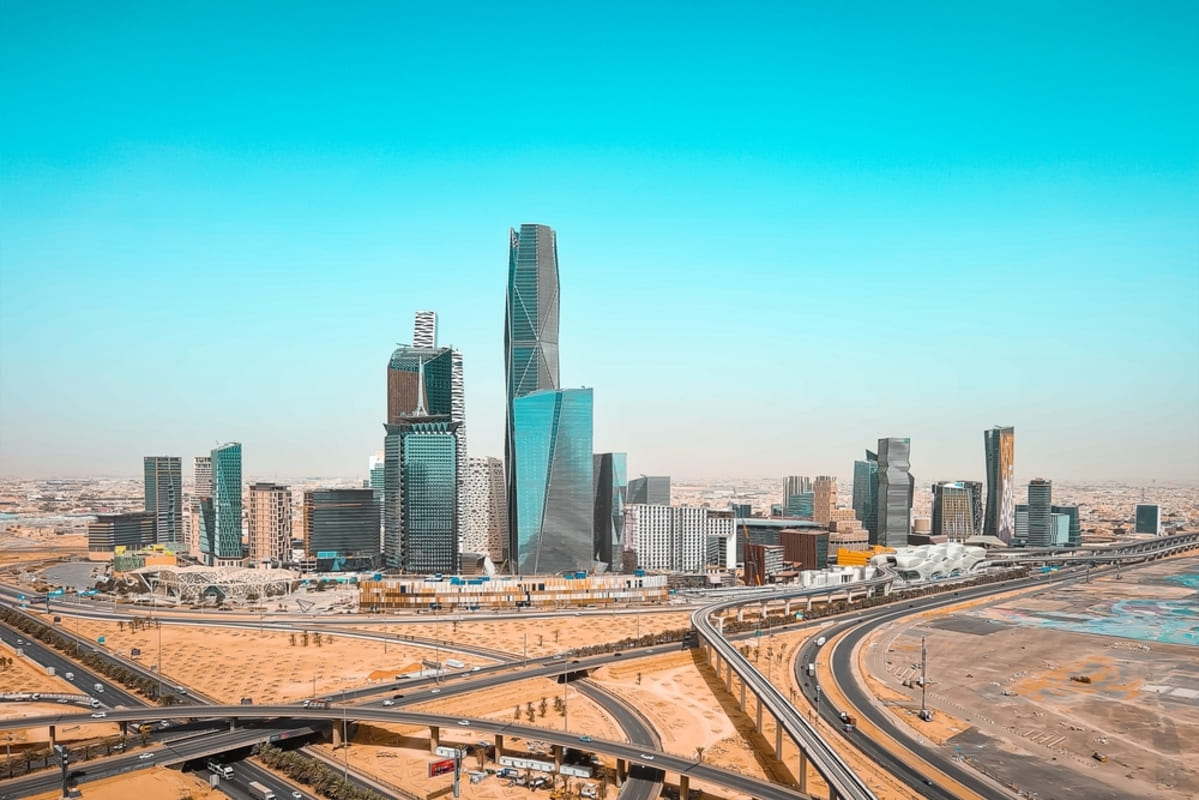Driven by Vision 2030 and significant investments in infrastructure alongside various real estate sectors, the remarkable growth in Saudi Arabia’s real estate market is set for solid performance and positive expansion across most sectors by 2025, as disclosed by JLL during its annual roundtable in Riyadh. The Kingdom’s construction market, currently valued at $70.33 billion, is expected to escalate to SAR342.6 billion ($91.36 billion) by 2029. Over $20 billion in projects are currently in progress in the capital, establishing Riyadh as a prominent investment center within the Kingdom.
Positive trends in hotel investments
Industry leaders at JLL’s roundtable underscored the remarkable momentum within Saudi Arabia’s real estate sector, predicting a 30 percent increase in hotel investments while highlighting the transformative influence of government initiatives on the real estate and construction landscape. Even though the overall value of awarded projects has decelerated, many are moving into the execution phase, which is boosting future expenditure.
Strengths and challenges in the market
Roundtable participants pointed out essential market strengths, including the simplification of regulations and a necessary reassessment of the project pipeline. The conversation also delved into the perceived cooling of the projects market, which has resulted in greater availability of capacity, alongside the government’s steadfast commitment to economic diversification. These elements contribute to a favorable outlook for ongoing growth in Saudi Arabia’s real estate sector.
Key megaprojects driving economic diversification
With flagship megaprojects such as Diriyah Gate, King Salman Park, and Expo 2030, Riyadh is at the forefront of the Kingdom’s economic diversification strategy. This emerging global investment hub is witnessing a surge in demand for Grade A offices, robust residential sales, and a thriving hospitality market.
Saud Alsulaimani, country head of KSA at JLL, remarked: “2024 has been a pivotal year for the KSA real estate market, with a sharp focus on project evaluation, regulatory improvements, and capital structuring, all geared towards engaging the private sector. This public-private synergy is accelerating transformative projects that underpin Vision 2030. We anticipate robust Q4 performance across most sectors, driven by innovation, sustainability, and economic resilience, with government initiatives, declining interest rates, and increased project execution fueling growth.”

Read more: Confidence high for construction market in UAE, Saudi Arabia
Surge in hospitality demand
The rising confidence among investors is particularly noticeable in Riyadh’s hospitality sector, which is experiencing unprecedented demand. Hotel investments are projected to increase by 30 percent by 2025, directly supporting Saudi Arabia’s ambition to welcome over 150 million visitors annually by 2030.
Evolving hospitality landscape
Amr El Nady, managing director for Hotels & Hospitality, MEA, commented: “Riyadh’s booming tourism and business activity are transforming its hospitality landscape. The focus is shifting toward sustainable practices and cutting-edge experiences to meet the evolving expectations of modern travellers. The travel & tourism sector is on track to contribute 10 percent to GDP (up from an estimated 5 percent currently), evidencing the sector is ripe for investment. While Riyadh and Jeddah benefit from advanced infrastructure and connectivity, emerging destinations such as Abha and AlUla offer unique opportunities for innovative, sustainable flagship developments that will redefine the hospitality sector.”
Residential and office market dynamics
Meanwhile, the residential market in the capital is thriving due to population growth and urbanization, leading to heightened demand for modern living spaces and a steady rise in average sales prices. The office market is also vibrant, with a 21 percent year-on-year increase in Grade A office rents, reflecting a strong demand for premium, hybrid-friendly work environments designed to attract top talent.
Collaborative efforts in Vision 2030
James Allan, CEO of Middle East and Africa at JLL; Taimur Khan, Head of Research for the Middle East and Africa; Dana Williamson, Head of Offices, Business Space & Retail for MEA; Maroun Deeb, Head of Projects and Development Services, KSA and Bahrain; and Sean Doherty, Head of Project and Program Management, MEA, also led the roundtable discussions, emphasizing Riyadh’s crucial role in advancing Vision 2030.

Long-term vision and future opportunities
Despite some delays in projects, Saudi Arabia’s long-term vision remains strong, with significant cash flow anticipated to peak by 2027. Enhanced collaboration among stakeholders in the supply chain is boosting efficiency, and the Kingdom is exploring innovative construction techniques and technologies to improve competitiveness and create a world-class built environment. Lower interest rates and an increasing interest in Public-Private Partnerships (PPPs) are generating appealing investment opportunities across the Kingdom, particularly in local manufacturing.
Focus on sustainability and major events
Stakeholders are emphasizing sustainability and net-zero targets, supported by government mandates on local content for labor and materials procurement. Green credentials and circularity are becoming vital considerations for leaders in commercial real estate. Hosting major events like the World Cup 2034 and Expo 2030 will further stimulate growth, solidifying Saudi Arabia’s position on the global stage.








